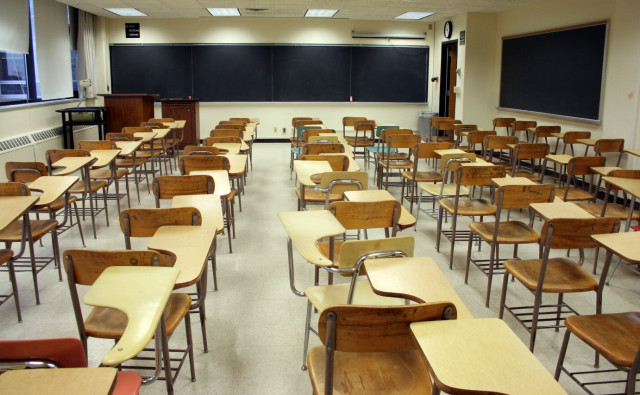Over 30 million young children out of school
Most primary schools in Pakistan lack basic facilities including drinking water, electricity and bathrooms.

With over 30 million out-of-school children aged between five and 16, the country’s basic education system is far from satisfactory.
According to official statistics provided by governmental agencies, Sindh, Gilgit-Baltistan (G-B) and Fata are the worse-affected regions in terms of drinking water facilities available for primary schoolchildren — on an average more than half of the schools in these regions lack drinking water amenities.
According to the World Food Programme and Ministry of Professional and Technical Training, in terms of electricity, more than 50% schools on average in Sindh, Balochistan and Fata do not have adequate power supply — with only 20% rural area schools in Balochistan and Sindh receiving some sort of power.
While Punjab and Khyber-Pakhtunkhwa (K-P) are relatively better in this category, typically half the schools in the rural areas of Balochistan, Sindh, G-B and Fata also lack sewerage facilities, including bathrooms for primary schoolchildren.
In the rural-urban area classification, there exists a clear schism — almost entirely across the country, urban area schools fare much better in terms of electricity, sewerage faculties, drinking water availability, teacher-student ratio and fifth-grade survival rate.
According to Dr Kozue Kay Nagata, Unesco’s representative in Pakistan, over 15 million children between the age of five and 16 are denied their right to free education in Sindh and about 78% rural women in this province remain illiterate.
Given United Nations’ assertion that Pakistan spends less than 2.5% of its gross domestic product (GDP) on the education sector, the current state of education in the country hardly seems surprising.
The above-mentioned trends exemplify the alarming state of the country’s primary education sector where access to education needs to be expanded through legislation and incentives.
UN lauds the Senate
Meanwhile, Unesco, which is the specialised agency of the UN system for education, science and culture, has lauded the Senate after the passage of the Right to Free and Compulsory Education Act.
Unesco’s representative in Pakistan, in her statement, felicitated all the senators on tabling and approving the multi-party bill for provision of free and compulsory education to all the five to 16 year-old children in the Islamabad capital territory — with over 70, 000 school-going children out of school in that area.
Dr Nagata said that she expects that passage of this “historical bill by the Senate will generate an emulative effect for the provincial assemblies to initiate similar legislation for out of school children in their respective areas”.
Meanwhile taking precedence, Sindh Education Minister Pir Mazaharul Haq has given a one-month deadline to the Education Department for the preparation of a Right to Free and Compulsory Education Bill for the province.
Published in The Express Tribune, July 24th, 2012.



















COMMENTS
Comments are moderated and generally will be posted if they are on-topic and not abusive.
For more information, please see our Comments FAQ